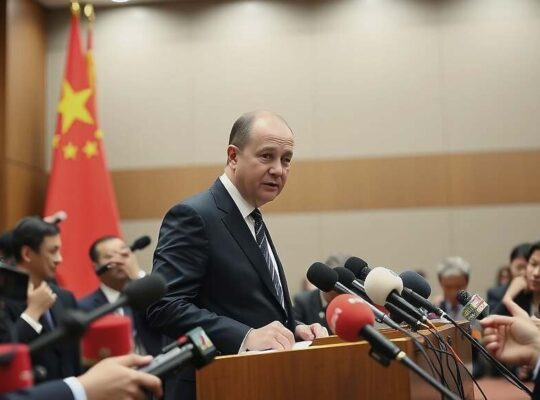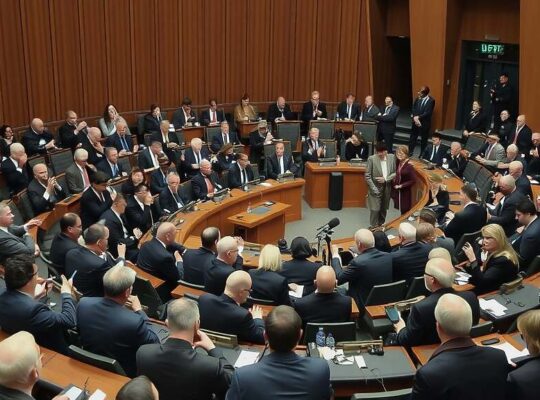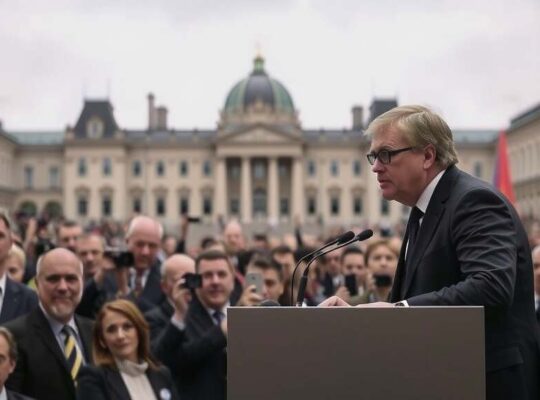Berlin’s governing mayor, Kai Wegner of the Christian Democratic Union (CDU), has publicly voiced concerns regarding the perceived disunity and public image of the German federal government, signaling potential anxieties ahead of his own upcoming election. Wegner, speaking to the Redaktionsnetzwerk Deutschland, criticized the lack of internal coordination amongst coalition partners, emphasizing the damaging impact of public disagreements.
“It’s undeniable that there’s room for improvement in the federal government’s public portrayal” Wegner stated, a remark subtly delivered with an eye towards minimizing potential criticism from Berlin’s own political landscape. His concern is particularly pertinent as he approaches a crucial election himself and a fractured federal government could amplify vulnerabilities for his own party.
The criticism extends beyond a mere visual presentation. Wegner acknowledged that internal disagreements are also present within the Berlin coalition itself, a reality inherent in coalition governance. However, he stressed the imperative of compromise and the subsequent need to effectively communicate these negotiated solutions. “Governing invariably involves compromise and those compromises must be skillfully communicated” he explained.
His remarks were sharpened by the ongoing and highly contentious debate surrounding pension reform. Wegner cautioned against unnecessarily alarming the public on the matter, describing the government’s proposed legislation as a “compromise that’s easily supportable” and reflective of agreements secured within the coalition contract. He cautioned critics to recognize this as only the initial step in broader reform efforts, implying they risk fueling public anxiety for purely political gain.
The timing of Wegner’s statements highlights a growing unease within the CDU, suggesting a desire to reassert a sense of cohesion and stability ahead of future challenges. The implied warning – “Those who argue too much will be voted out” – serves as a pointed message not only to the federal coalition but also a subtle reminder of the pressures facing politicians at all levels, particularly amidst economic uncertainty and societal anxieties.












